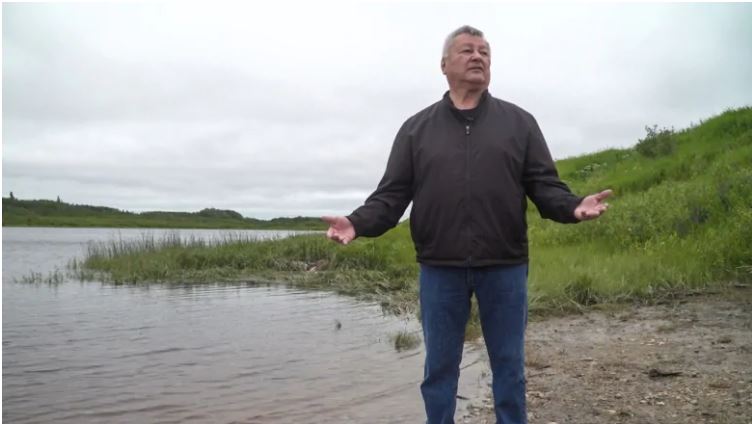When the pandemic started, the province was testing the population and updating the number of COVID cases daily. But four years on, testing has stalled and the main way to get a snapshot of the COVID picture is through wastewater. Mark Servos is with the department of Biology in Canada and Research Chair in Water Quality Protection at the University of Waterloo.
Boil water advisory lifted for Délı̨nę, N.W.T.
A boil water advisory issued last week for Délı̨nę, N.W.T., has been lifted. In a news release on Tuesday, the territory's chief public health officer said that normal use of drinking water in the community can resume. The advisory was issued on Friday because health officials said water in the community had higher turbidity, or more mud in it than usual.
N.S. health officials can't determine source of legionnaires' disease outbreak
Person in Florida dies after brain-eating amoeba infection, possibly due to sinus rinse with tap water, health officials warn
A person in Charlotte County, Florida, has died after being infected with the rare brain-eating amoeba Naegleria fowleri. The infection possibly resulted from "sinus rinse practices utilizing tap water," according to a news release from the Florida Department of Health in Charlotte County. The release was issued in February to alert the public about the infection.
4 Metro Vancouver beaches closed to swimming due to high E. coli counts
Health officials have closed a number of Metro Vancouver swimming beaches due to high levels of E. coli bacteria. Vancouver Coastal Health says English Bay, Trout Lake, Locarno Beach and Sandy Beach on Bowen Island are closed to swimmers because water samples contained E. coli levels that exceed recommended guidelines. Swimming beaches in Metro Vancouver may be required to close when a single sample finds E. coli levels exceeding 400 in 100 millilitres of water or the geometric mean of five days of samples surpasses 200 E. coli in 100 millilitres.
Iqaluit residents can drink tap water again, Nunavut's health department says
Nunavut's Department of Health lifted the do-not-consume order in Iqaluit, meaning residents there can once again drink from the city's water supply. Iqaluit's 8,000 residents have spent the last two months unable to drink the city's water from their taps due to concerns about fuel contamination. Officials originally told residents not to drink the tap water on Oct. 12, after complaints started flooding in about a smell of fuel in the water. In a news release Friday afternoon, Chief Public Health Officer Dr. Michael Patterson stated that all tests done after Oct. 19 have shown the drinking water is safe to consume.
Outaouais health unit investigating legionellosis outbreak
Western Quebec's health authority is investigating six cases of legionellosis that were recently reported in the region. So far, health officials have been unable to identify the source of the contamination, the Centre intégré de santé et de services sociaux de l'Outaouais (CISSSO) said in a Friday news release. Legionellosis is the broad term for a number of diseases, including legionnaires' disease, caused by the water-borne legionella bacteria.
Is it safe to swim in a pool during the COVID-19 pandemic?
As temperatures across Canada continue to rise, few things do a better job of keeping us cool than going for a swim. But with the closure of public swimming pools across the country due to the COVID-19 pandemic, many may be left wondering how safe it will be to return to these spaces once they reopen. According to Matthew Miller, a biochemistry professor at McMaster University in Hamilton who is studying the novel coronavirus, COVID-19 is highly unlikely to be transmitted through water.
8-10 years to fix Attawapiskat water problems, chief estimates
It's been one month since Attawapiskat First Nation declared a state of emergency over its poor water quality. The measure was taken in the northern Ontario community due to high levels of trihalomethane (THMs) and haloacetic acids (HAAs) in the water the residents use for bathing and cooking. The fly-in community has a separate system for its drinking water.
Bacteria discovery has left island hospital relying on bottled water since March
Patients and staff at Salt Spring Island's sole hospital are still relying on bottled water, months after legionella bacteria was detected in the facility's water system. Island Health advised against using the water at Lady Minto Hospital for drinking or bathing in March, when routine testing showed low levels of the bacteria were present.











